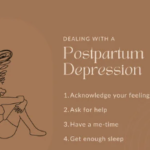Introduction
Most times, we often separate our mind and body as different parts, but they both work together to improve our mental and physical health fitness. When they say mind-body, these connection holds a holistic approach not only to our mental well-being, but also physical, emotional and social well-being.
Everyone experiences mental health differently, and factors like age, gender, culture, background or beliefs, and personal circumstances or life experiences changes how individuals perceives and cope with mental health challenges. What may seem obvious or straightforward to you might be perceived differently by a person with mental health challenges. Instead, focus on the comprehensive things they might need and work on how you can be of help.
The body-mind connection
The relationship between the body and mind is a two-way benefit. The way the body can help influence your thought, emotions, and physical health, the mind can also do that. Let’s look at the science behind this connection.
- Mental state can influence physical health: The way the body is, whatever happens in the mind, can affects your physical health. For instance, if you’re stressed, it can have some effects to your physical wellbeing, like headache or increase in high blood pressure. Another example you can consider is, when you’re depressed, your immune system is weak, and prone to infections.
- Physical Activity can Impact Mental Well-Being: Regular physical activities are also beneficial, because it plays a vital role to your mental health. Exercise is a perfect example that can help relax your mind.other activities like quality sleep can contribute to your positive and balanced mental state.
- Positive Thinking can Boost Immune Function: The power of positive thinking can help improve both your mental health and physical wellbeing. An individual always with a positive outlook on life tends to have stronger immune responses. A good emotion and attitudes can improve the production of a strong immune system. Also, a positive thinking gives you a healthier lifestyle. You can decide on eat balanced diet or have a regular exercise, which further support your immune function and overall health.
How mental health affects physical fitness
Here’s how mental health can affect your physical fitness:
- Stress response and hormonal changes: if you experience a long emotional strain, your body tends to respond to it by releasing hormones like cortisol and adrenaline. Although these hormones can be needed for a short while, but if it’s getting to high level, it can have an effect to your physical health. For instance, stress can suppress your immune function and make you prone to sickness easily. It can also cause blood pressure and heart rate to spike.
- Sleep patterns and physical recovery: Mental state can affect your sleep quality and duration. A poor mental health can often lead to sleep disturbance, which will affect your physical health. One of it could be decreased productivity. If you hinder your body from a quality sleep, either your personal life or professional life performance will be reduced.
- Behavioral changes: If there is a change in your mental states, it can affect your behavior, which will eventually affect your physical health. A decrease mental state can allow you lose interest in some physical activities, like exercise or maintain healthy diet. It could also make you neglect personal hygiene and engage in risky behaviors; like substance abuse.
How physical fitness impact mental health
Physical activity has its own benefits both to physical health and mental health. Here’s how staying fit can influence your mental health:
- Mood Enhancement: Engaging in physical fitness, like exercise can enhance your mood. Most times, some hormones are also released during physical activity, called feel-good hormones. These hormones can make you feel happy and reduce any symptoms of depression and anxiety. That’s why a recommended treatment plan for mental health like depression, is physical activities.
- Stress Reduction: Exercise is a natural stress reliever. Engaging in physical activity help improve your mental health and fitness, making it easier for you to adapt to stressful day. Also, exercise provide an opportunity for you to take a break from other activities and focus on yourself, which is a very active recommended medication that reduces stress and promote mental stability.
- Improved Sleep: Quality sleep has its own effects on both physical health and mental health. Physical activity can improve your sleep pattern, especially when performed during the day, it will help you fall asleep faster and enjoy deeper, more restful sleep. If you perform exercise regularly, you can combat sleep disorder and promote better sleep hygiene.
- Cognitive Function: When you engage in physical activities, it enhances various cognitive function. A regular exercise improves blood circulation to the brain, which improves your memory and learning skills. It also creates room for a creative mind to solve problems.
Holistic wellness practices
To enjoy the full holistic wellness for both physical and mental wellbeing, do the following.
- Exercise and diet: Regular physical activities can help improve both your physical and mental wellbeing. Engage more on physical exercise, attend yoga sessions, consider daily walks or engage in outdoor activities. You can also join dance clubs.
For nutrition and diet, ensure you eat lots of fruits and vegetables, stay hydrated always by drinking enough water. Also, limit processed food and sugar intake.
- Wellness Programs: Participate in wellness programs offered by some wellness center or other organizations. These programs can provide structured support on how you can achieve a holistic health. These programs often include fitness classes, nutrition workshops, stress management sessions, and more.
- Connect with nature: Spend more time to connect with nature around you. You can decide to engage in daily walks, visit parks, go for cycling, meet with new people around and interact with them. Doing this will have a profound effect on your whole wellness.
- Community Health and Wellness: Engage in community health initiatives and activities. promotes a sense of belonging and collective well-being. Community health and wellness programs often focus on preventive care, education, and support networks.
Addressing Specific Mental Health Conditions
Holistic wellness can manage and prevent some specific mental health conditions. Which include:
- Depression: Regular exercise, balanced nutrition, and mindfulness practices can help manage depression. Also support from health coaches or wellness programs offers additional coping strategies
- Schizophrenia: A holistic wellness not implemented can cause a mental disorder, which will affect how a person thinks or acts. Engage anyone with schizophrenia to physical activity, stress management techniques, and wellness programs.
- Bipolar Disorder: Regular routines, stress reduction techniques, and social support can help manage bipolar disorder.
- Postpartum Depression: New mothers can benefit from holistic wellness approaches to manage postpartum depression. Physical activity, emotional support from family and community, and mindfulness practices can help mitigate symptoms and promote recovery.
Conclusion
The mind and body connection are important for holistic wellness, which impacts mental health and fitness. By adopting a holistic approach everyone can achieve total health and wellness through physical activity, emotional balance, mental stimulation, spiritual fulfilment, and social connections.



















